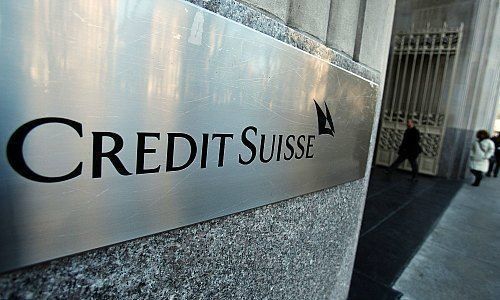The decline in client assets at the Swiss business of Credit Suisse in the fourth quarter in part was a consequence of the bank’s determination to rid itself of untaxed assets.
1.1 billion Swiss francs ($1.09 billion): that’s the amount by which net new money declined in the fourth quarter in the Swiss private client business of Credit Suisse. With this drop, the overall annual growth of the key figure for private banking operations came in at 3 billion francs – which compares with the 4.7 billion francs it achieved in 2017. Assets under management in this segment dropped by 10 billion francs from 2017.
In today's press release, the bank said the drop was due to unfavorable market conditions in the latter parts of 2018, something that affected most competitors as well.
Swiss Tax Avoidance?
Speaking to journalists however, the boss of Credit Suisse’ Swiss business, Thomas Gottstein, confirmed that the decline in new money was also due to other reasons. Gottstein said that assets had been reclassified and – something that wasn’t known publicly – the bank once again combed through its private-banking business looking for untaxed assets.
This time round, the bank mainly targeted so-called Swiss-domiciled customers, ie clients living in Switzerland. The Swiss government still makes a distinction between tax fraud and tax avoidance and the action by the country's second-largest bank suggests that it isn’t altogether sure its Swiss clients only have taxed assets on their accounts.
Clean Banking a Necessity
After years of often costly legal disputes with tax authorities in countries such as the U.S., Germany and France, Swiss banks made a huge effort in getting their foreign clientele to declare untaxed assets held on Swiss accounts or otherwise pull out their money. The Swiss financial service industry adopted a strategy of banking only with clean, registered assets and last year implemented the automatic exchange of information with numerous foreign countries.



































